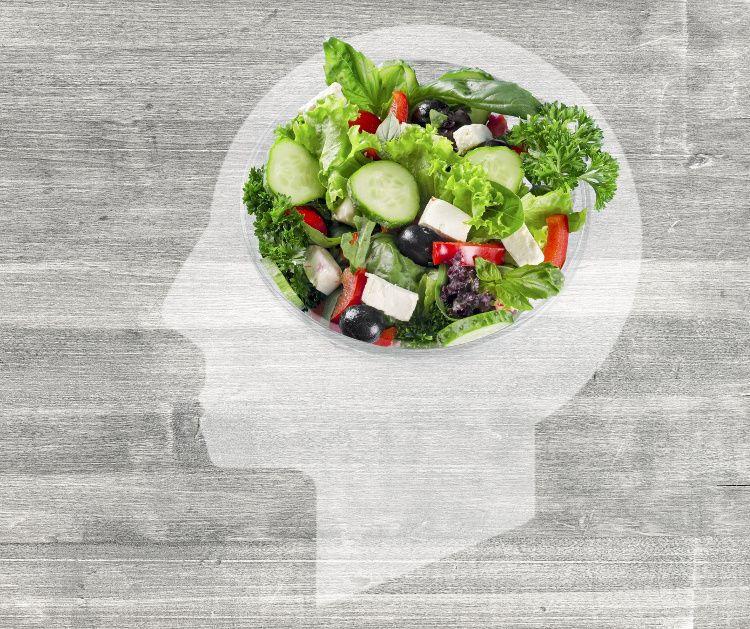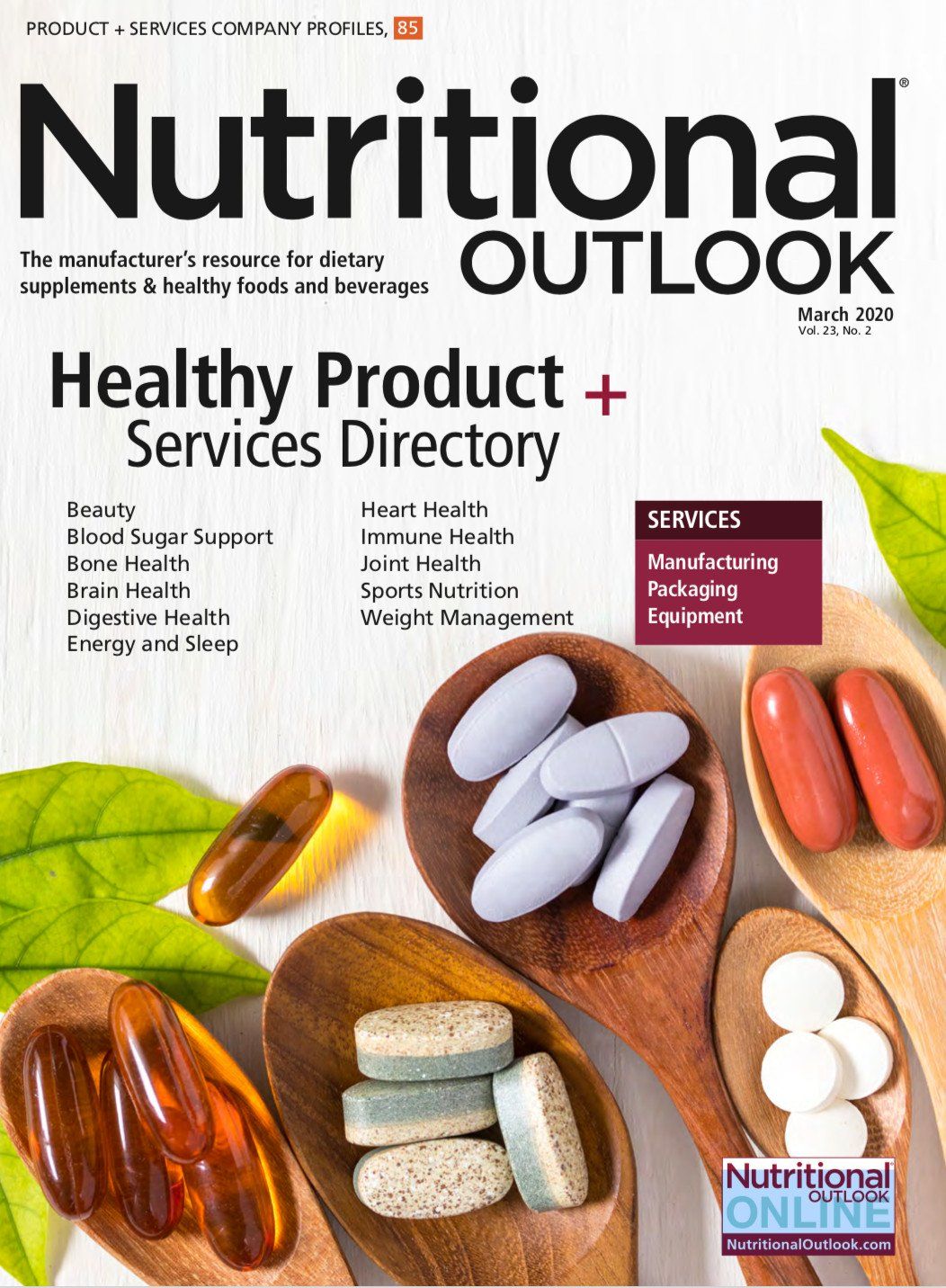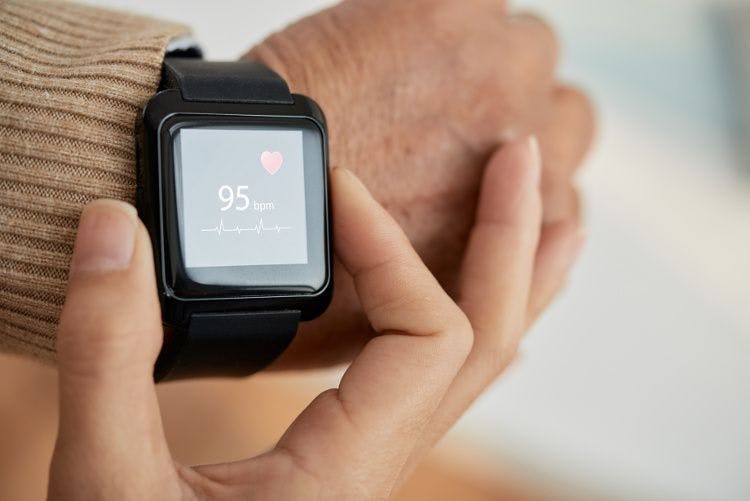Nutritional psychiatry is one of the growing fields shaping the brain health supplements market
The burgeoning field of Nutritional Psychiatry is finding that there are many consequences and correlations between what you eat, how you feel, and how you ultimately behave.
Photo credit © Billionphotos - Stock.adobe.com

Brain health is a growing area of interest to dietary supplement makers. Today’s supplement companies are looking to capitalize on the expanding population of consumers seeking to nourish their minds with a variety of nutrients in the name of mood support and cognitive performance.
While there are countless ways to position a brain health product in today’s market given the central role brain health plays in health and wellness, cognitive nutrition teeters on nutrition’s uncertain frontier, points out Nutrition Business Journal’s (NBJ) 2018 Supplement Business Report. Simply put, research on the interplay between nutrition and the brain is still emerging, and how that relationship shakes out in terms of effective dietary supplementation remains to be seen.
Despite this, the brain health supplements market seems to be going nowhere but up. Brain health supplement sales grew 24% in 2019, according to market research firm (IRI) Chicago during a presentation given at last November’s Council for Responsible Nutrition (CRN) annual conference. And according to CRN’s own 2019 Consumer Survey on Dietary Supplements, up to 14% of supplement users today take dietary supplements for brain health.
The Case for Nutritional Psychiatry
According to a recent article in Psychology Today1, “The human brain is by far the most complex and intricate organ in the body. Apart from regulating our most basic biological functions, the brain is also the seat of consciousness. When something is not right, either due to an irregularity in neurochemical signaling or because of structural deficits caused by either injury or old age, this can often affect how we experience consciousness and how we perceive the world around us.”
Suffice it to say the brain is pretty important, and so too is what you feed it. That is the impetus behind an emerging field called “Nutritional Psychiatry,” which leans heavily on the connection between diet and brain health. It is a discipline in its infancy, created only in the last 10 years.
A 2015 article in the Lancet2 said that Nutritional Psychiatry is developing into a real opportunity for clinical intervention for patients, especially those who suffer from depression and anxiety.
“Psychiatry is at an important juncture, with the current pharmacologically focused model having achieved modest benefits in addressing the burden of poor mental health worldwide,” the Lancet authors wrote. “Although the determinants of mental health are complex, the emerging and compelling evidence for nutrition as a crucial factor in the high prevalence and incidence of mental disorders suggests that diet is as important to psychiatry as it is to cardiology, endocrinology, and gastroenterology.”
Further, evidence is steadily growing for the relationship between dietary quality (and potential nutritional deficiencies) and mental health, and for the select use of nutrient-based supplements to address deficiencies, or as monotherapies or augmentation therapies, the Lancet article said.
A leading organization in the field of Nutritional Psychiatry is the Food & Mood Centre at Deakin University in Australia. This multi-disciplinary research center aims to understand the complex ways in which what we eat influences our brain, mood, and mental health. The Food & Mood Centre is supported by a team of researchers from various backgrounds studying the food-mood relationship at various levels, from microbiology to public health.
“Within the field of Nutritional Psychiatry, our research initiatives aim to identify nutrition-based approaches to preventing and treating mental disorders that may improve brain and mental health both in Australia and globally,” the organization says.
Leading the charge for the Center is Deakin University Associate Professor Felice Jacka. In a recent study, Professor Jacka examined data from MRI scans of approximately 250 older Australians, then studied their diets to see if the quality of their diets was linked to the size of their hippocampus-a region of the brain thought to be central to learning, memory, and mood.
Those people who had a diet higher in fruit, vegetables, and fish had larger hippocampi, while those whose diets were high in processed and takeaway foods had smaller hippocampi. These dietary patterns were also linked to the participants’ risk for depression over time.
A 2018 Harvard Health Blog3 noted that while the burgeoning field of Nutritional Psychiatry is finding there are many consequences and correlations between not only what you eat, how you feel, and how you ultimately behave, there are also strong links to the kinds of bacteria that live in the gut.
According to Nutrition Business Journal, the gut-brain axis is already getting a lot of attention. “The idea that the brain talks to the gut and the gut talks back is intuitive and increasingly well studied. What we put in our gut affects our mood, and our mood in turn affects how our gut feels and functions,” said NBJ in its 2018 Supplement Business Report4. “Though perhaps years and millions of dollars away from proven efficacy, microbiome research presents a proposition that the right microbe or team of microbes could provide an option for everything from asthma to autism. Consumers spent $75 million in probiotics for brain health in 2016, but that number will undoubtedly grow.”
When it comes to the prevention of Alzheimer’s disease, one of the leading researchers in the world on dementia can recommend quite a few ways to stave off the dreaded regressive disease. But none of these methods are a magic pill.
“There are four medications that have been approved for preventing or treating Alzheimer’s, but their effectiveness is limited, and new medications that have been tested in the last decade do not work. This makes it even more essential to do what we can to change or delay the course of the disease,” said Professor Michal Beeri, director of The Joseph Sagol Neuroscience Center at Sheba Medical Center, Tel HaShomer (Israel), and a professor of psychiatry at the Icahn School of Medicine at Mount Sinai (New York City).
Professor Beeri reports that there are methods that have been shown to decrease the risk for this devastating disease. Habits that are good for the heart are also good for the brain, and five of the seven established risk factors for Alzheimer’s (lack of physical activity, obesity, diabetes, hypertension, and smoking) are also the risk factors for heart disease. She is firm in her belief that Alzheimer’s is a disease that requires care and attention well before it starts to rear its ugly head in the later decades of life.
Future Challenges
While the brain health supplements market holds so much promise and potential, it is also riddled with obstacles that could impede growth.
As NBJ pointed out in its 2018 report, “We know how good we feel when we eat well and how sluggish we feel when we succumb to the pitfalls of the modern plate. But somehow, and the culprit remains unclear, that connection between health and wellbeing stops somewhere short of the blood-brain barrier for too many people, and perhaps too many supplement brands and manufacturers.”
The report went on to say while heart health, sports nutrition, and better digestion are easy and obvious sales targets, throwing in words like “anxiety” or “mental acuity” invites a certain amount of skepticism: “The unseen and unknowable neurons suddenly become a pharmaceutical dominion. Even nutritional and natural remedy options start to sound more like drugs, targeting a single organ and abandoning the holistic approach.”
For the future, supplement companies must tread carefully in this sector and pay close attention to how they position and communicate the promise of their products.
References:
- Ahmad S. “The Link Between BDNF and Neuroplasticity.” Psychology Today. Published online January 10, 2020. Accessed at: www.psychologytoday.com/us/blog/balanced/202001/the-link-between-bdnf-and-neuroplasticity
- Sarris J et al. “Nutritional medicine as mainstream in psychiatry.” The Lancet Psychiatry, vol. 2, no. 3 (March 1, 2015): 271-274
- Selhub E. “Nutritional Psychiatry: Your Brain on Food.” Harvard Health Blog. Published November 16, 2015. Accessed at: www.health.harvard.edu/blog/nutritional-psychiatry-your-brain-on-food-201511168626
- Nutrition Business Journal. 2018 Supplement Business Report. Accessed at: www.nutritionbusinessjournal.com/reports/2018-nbj-supplement-business-report/

Prinova acquires Aplinova to further increase its footprint in Latin America
April 7th 2025Prinova has recently announced the acquisition of Brazilian ingredients distributor Aplinova, which is a provider of specialty ingredients for a range of market segments that include food, beverage, supplements, and personal care.

























